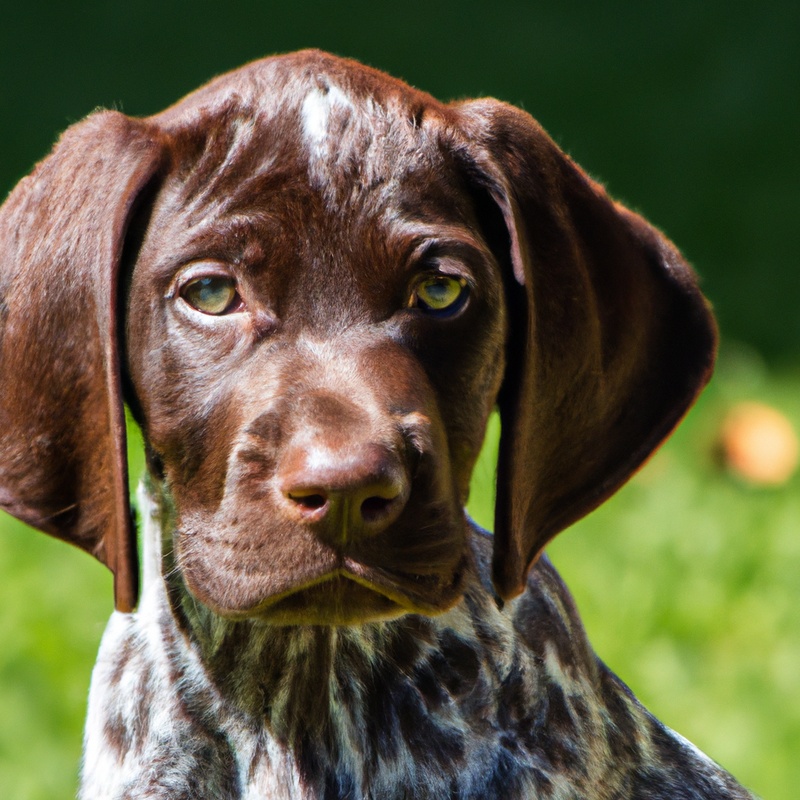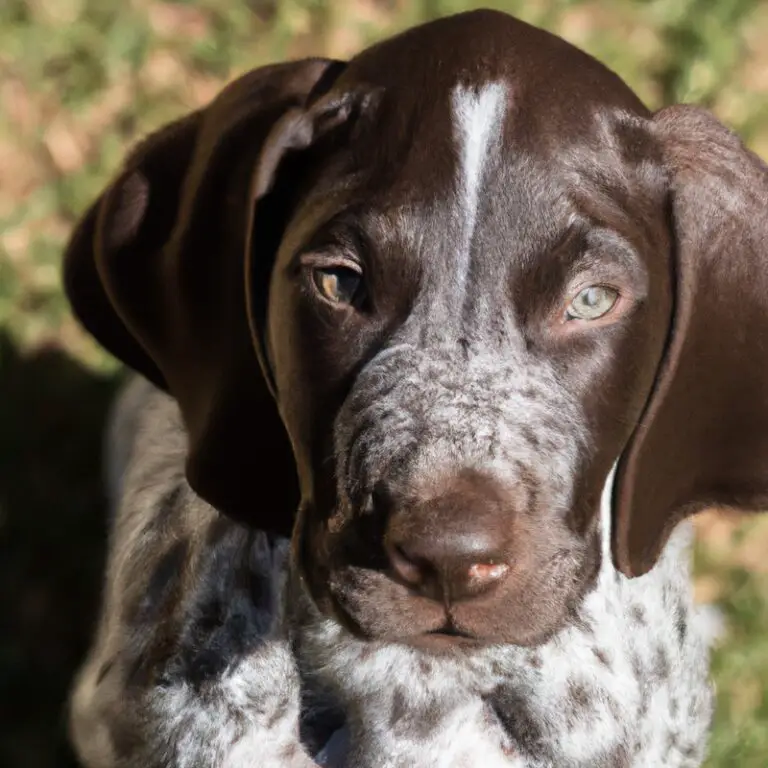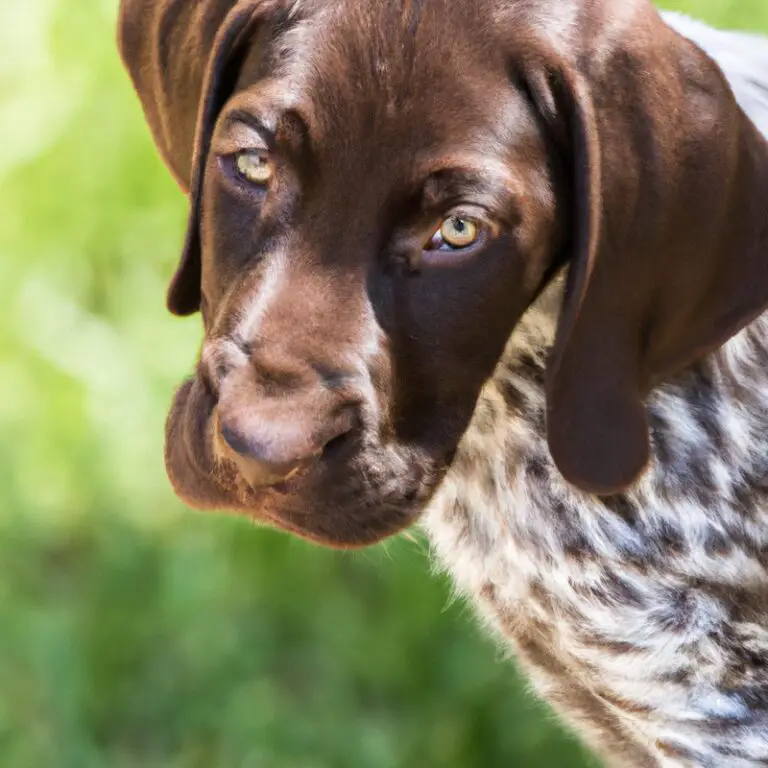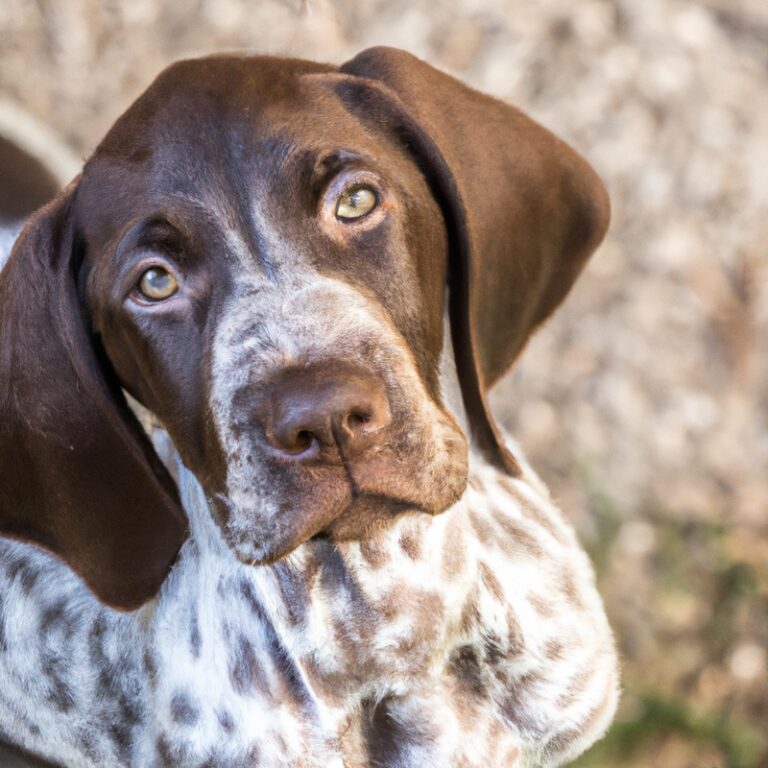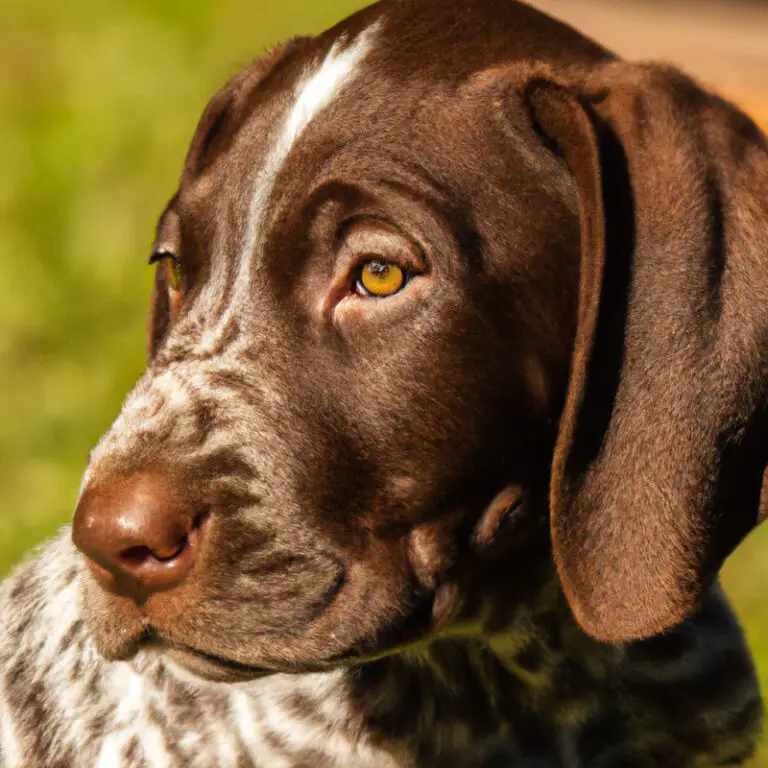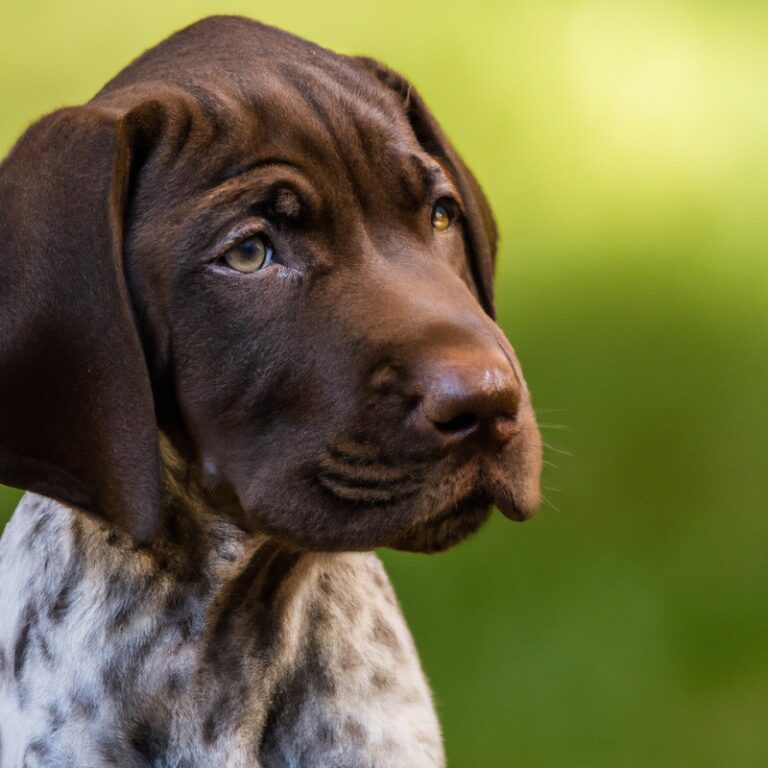What Are The Signs That My German Shorthaired Pointer Is Bored And Needs More Exercise?
Key Takeaways:
- Restlessness and excessive energy may indicate that a German Shorthaired Pointer is bored and in need of more exercise.
- Destructive behavior, such as chewing on furniture or excessive digging, can be a sign of boredom in a German Shorthaired Pointer.
- Vocalization and attention-seeking behavior may increase when a German Shorthaired Pointer is bored and lacking mental and physical stimulation.
- Lack of interest in toys or games, along with a decrease in overall enthusiasm, could suggest that a German Shorthaired Pointer needs more exercise to alleviate boredom.
Is your German Shorthaired Pointer feeling a little lackluster lately? Maybe they’re exhibiting some unusual behaviors that have you scratching your head.
Well, there’s a good chance that boredom is the culprit! Known for their boundless energy, these lively dogs need plenty of exercise and mental stimulation to thrive.
In this article, I’ll dive into the signs that your German Shorthaired Pointer is bored and craving more activity. From increased destructive behavior to restlessness and lack of interest in toys, we’ll explore it all.
Plus, I’ll share some expert tips on providing adequate exercise and mental stimulation to keep your furry friend happy and fulfilled.
So, let’s uncover the secrets to a content and contented German Shorthaired Pointer!
| Signs of Boredom | Description |
| Excessive chewing or destructive behavior | Your German Shorthaired Pointer may chew furniture, shoes, or other household items when bored. |
| Hyperactivity or restlessness | If your dog constantly paces, jumps, or seems unable to relax, it may be a sign of boredom. |
| Excessive barking or whining | Bored dogs often bark or whine excessively as a way to seek attention or relieve their boredom. |
| Seeking attention | If your dog constantly nudges you, brings you toys, or tries to engage with you, it may be craving more interaction. |
| Following you around | Your GSP may follow you closely wherever you go, seeking stimulation or activity. |
| Escaping or attempting to escape | Bored dogs may try to escape from the yard or house in search of stimulation or companionship. |
| Increased attention-seeking behavior | If your dog demands more attention by nudging or pawing, it may be a sign of boredom or frustration. |
| Difficulty settling down or sleeping | A bored dog may struggle to settle down or have difficulty sleeping, leading to restlessness and increased activity. |
Understanding the German Shorthaired Pointer breed
Characteristics and energy levels of German Shorthaired Pointers
German Shorthaired Pointers (GSPs) are renowned for their high energy levels and athletic abilities. They are an enthusiastic and active breed that thrives on physical exercise.
GSPs have a strong desire to run, play, and explore, so keeping them mentally and physically stimulated is crucial.
These dogs are intelligent and require mental stimulation along with regular exercise. They excel in activities like obedience training, agility, and scent work.
GSPs are known for their endurance and can accompany you on long hikes or runs without getting tired easily.
Due to their energetic nature, GSPs can become bored and restless if they don’t get enough exercise. This can lead to unwanted behaviors such as excessive barking, digging, or chewing.
They may also become more prone to anxiety or destructive behavior.
To keep your GSP happy and content, make sure to provide them with regular, vigorous exercise sessions. Aim for at least an hour of exercise every day, divided into multiple sessions.
This can include activities like long walks, jogs, fetch, or playing in a securely fenced yard.
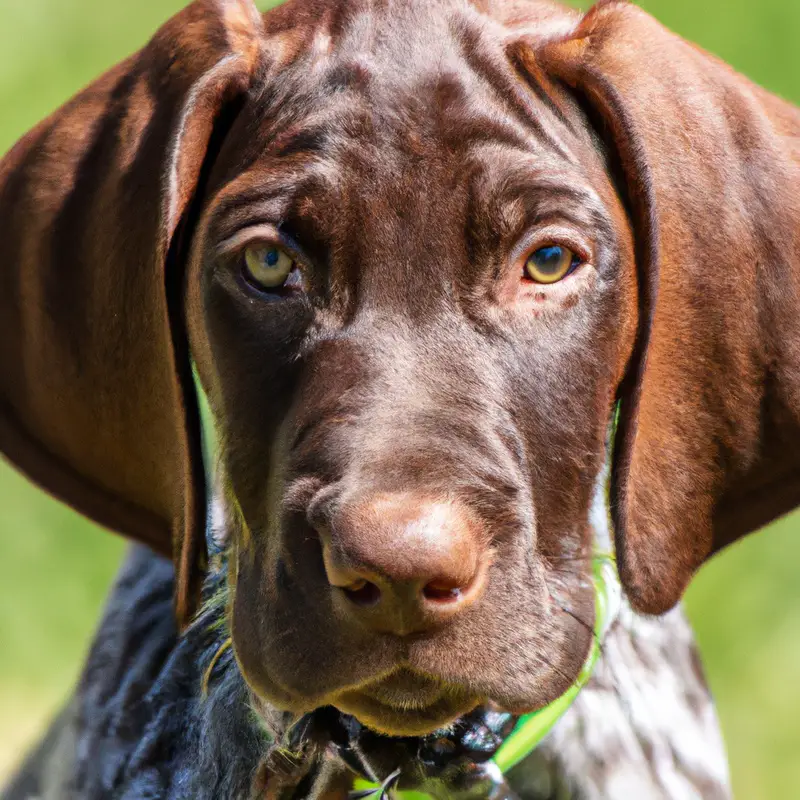
Reasons why German Shorthaired Pointers get bored easily
German Shorthaired Pointers are active and intelligent dogs, which means they have a lot of energy and need mental stimulation. Here are a few reasons why they can get bored easily:
- Lack of exercise: These dogs require regular physical activity to burn off their energy. Without enough exercise, they can become restless and bored.
- Lack of mental stimulation: German Shorthaired Pointers are smart and need mental challenges to stay engaged. If they don’t have enough mental stimulation, they may get bored and find ways to entertain themselves, which may not be desirable.
- Lack of interaction: These dogs thrive on human interaction and can feel bored or lonely if left alone for long periods. They need social interaction and companionship to stay happy.
- Routine and repetition: German Shorthaired Pointers can get bored if they are stuck in a monotonous routine. They enjoy variety and new experiences, so mixing up their daily activities can help prevent boredom.
Signs that your German Shorthaired Pointer is bored
Increased destructive behavior
Increased destructive behavior is a clear sign that your German Shorthaired Pointer is bored and needs more exercise. When these energetic dogs don’t get enough physical and mental stimulation, they may resort to destructive behaviors as a way to entertain themselves.
So, if you notice that your GSP is chewing furniture, shoes, or household items, digging up the yard, or scratching doors and walls, it’s a strong indication that they need more exercise and mental enrichment.
Giving your GSP plenty of opportunities to burn off their energy through activities like long walks, play sessions, and puzzle toys can help address this boredom and curb their destructive behavior.
Excessive barking or howling
Excessive barking or howling is one of the signs that your German Shorthaired Pointer is bored and in need of more exercise. When your dog is not getting enough physical activity, they may resort to vocalizing excessively as a way to release pent-up energy.
So if you notice your GSP barking or howling more than usual, it could be a clear indicator that they need more exercise and mental stimulation.
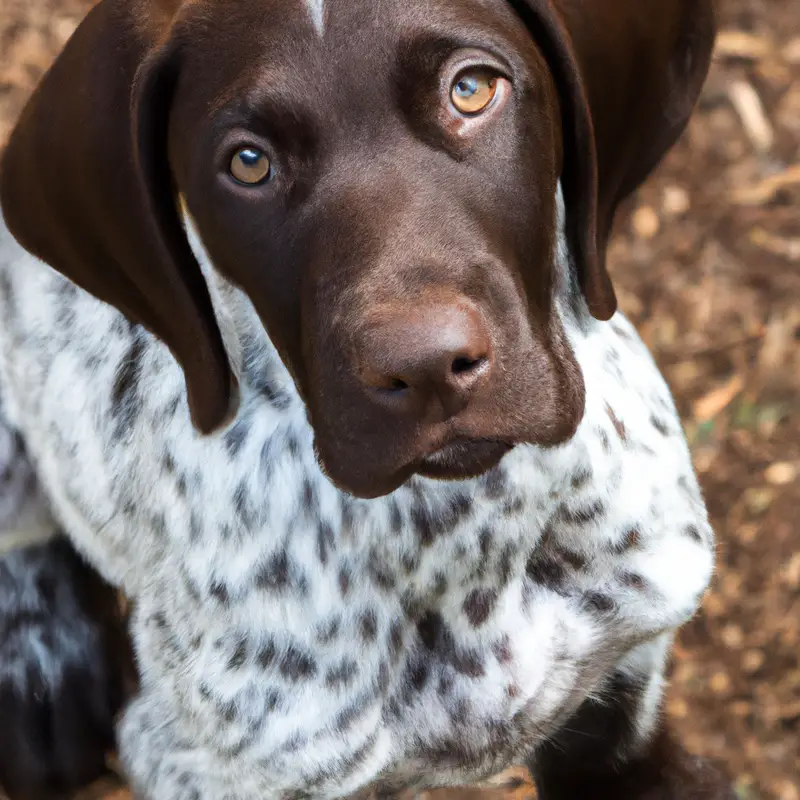
Restlessness and pacing
Restlessness and pacing are clear signs that your German Shorthaired Pointer is bored and in need of more exercise. If you notice your dog frequently pacing back and forth or exhibiting a restless behavior, it usually means they have excess energy they need to release.
This restlessness can manifest in various ways, such as incessant pacing, whining, or constantly seeking attention.
Keep an eye out for these signs and make sure to provide your pup with adequate physical and mental stimulation to combat their boredom.
Lack of interest in toys or play
If your German Shorthaired Pointer is showing a lack of interest in toys or playtime, it could be a sign that they are bored and in need of more exercise. Dogs are naturally active animals, and they need mental and physical stimulation to stay happy and healthy.
When they become bored, they may lose interest in their usual toys and games.
So, if your furry friend seems uninterested or disengaged during playtime, it’s a good idea to increase their exercise routine to keep them entertained and fulfilled.
Seeking attention or being overly clingy
If your German Shorthaired Pointer is seeking attention or being overly clingy, it could be a sign of boredom. Dogs are social creatures, and when they don’t get enough physical and mental stimulation, they may become clingy in an attempt to alleviate their boredom.
Here are a few signs to look out for:
- Your dog follows you around constantly, even when you’re just moving from room to room.
- They constantly paw at you or nudge you for attention.
- They become excessively vocal, barking or whining for no apparent reason.
- Your dog may become destructive, chewing on furniture, shoes, or other household items.
If you notice any of these signs, it’s important to provide your German Shorthaired Pointer with more exercise and mental stimulation. Daily walks, interactive toys, and training sessions can help keep them engaged and prevent boredom.
Importance of exercise for German Shorthaired Pointers
Mental and physical health benefits of exercise
Exercise offers a plethora of mental and physical health benefits for everyone, including our German Shorthaired Pointers. For starters, regular exercise helps to keep their weight in check, preventing obesity which can lead to a myriad of health issues.
Moreover, exercise is essential for maintaining their mental wellbeing.
It helps to alleviate boredom and reduce stress levels, which ultimately leads to a happier and more balanced dog. Additionally, exercise promotes better sleep patterns, keeping them more alert and focused during the day.
Physically, exercise strengthens their muscles and bones, improving their overall strength and endurance.
This is crucial for their agility and athleticism, especially if they participate in activities like agility training or hunting. Furthermore, exercise stimulates their cardiovascular system, improving heart health and boosting their overall fitness level.
This can also help to prevent certain diseases, like heart disease and diabetes, ensuring a longer and healthier life for our furry friends.
Recommended exercise requirements for German Shorthaired Pointers
German Shorthaired Pointers are active and energetic dogs that require regular exercise to keep them happy and healthy. Here are the recommended exercise requirements for these lively pups:
- Daily exercise: Aim to provide your German Shorthaired Pointer with at least an hour of exercise every day. This can include activities such as brisk walks, jogging, or playing fetch in a securely fenced area.
- Mental stimulation: In addition to physical exercise, it’s important to engage your dog’s mind. Incorporate activities like puzzle toys, obedience training, and scent work to keep them mentally stimulated and prevent boredom.
- Off-leash exercise: German Shorthaired Pointers love to run and explore. Whenever possible, provide opportunities for off-leash exercise in a safe and enclosed area, such as a dog park or a spacious backyard. This will allow them to stretch their legs and burn off excess energy.
- Swimming: Many German Shorthaired Pointers are natural swimmers and enjoy the water. If you have access to a dog-friendly beach or a safe swimming area, let them take a dip. Swimming is an excellent low-impact exercise that provides a full-body workout for your pup.
How exercise helps prevent boredom and behavioral issues
Exercise plays a vital role in preventing boredom and behavioral issues in German Shorthaired Pointers. When these energetic dogs don’t get enough physical activity, they can become bored, restless, and exhibit unwanted behaviors.
By engaging in regular exercise, they release pent-up energy, stay mentally stimulated, and reduce the likelihood of destructive behavior.
Exercise helps in maintaining a healthy weight, preventing obesity-related issues that can affect them physically and mentally. It also promotes better sleep, enhances their overall well-being, and strengthens the bond between you and your furry friend.
So, make sure to provide your German Shorthaired Pointer with plenty of exercise to keep them happy and well-behaved.
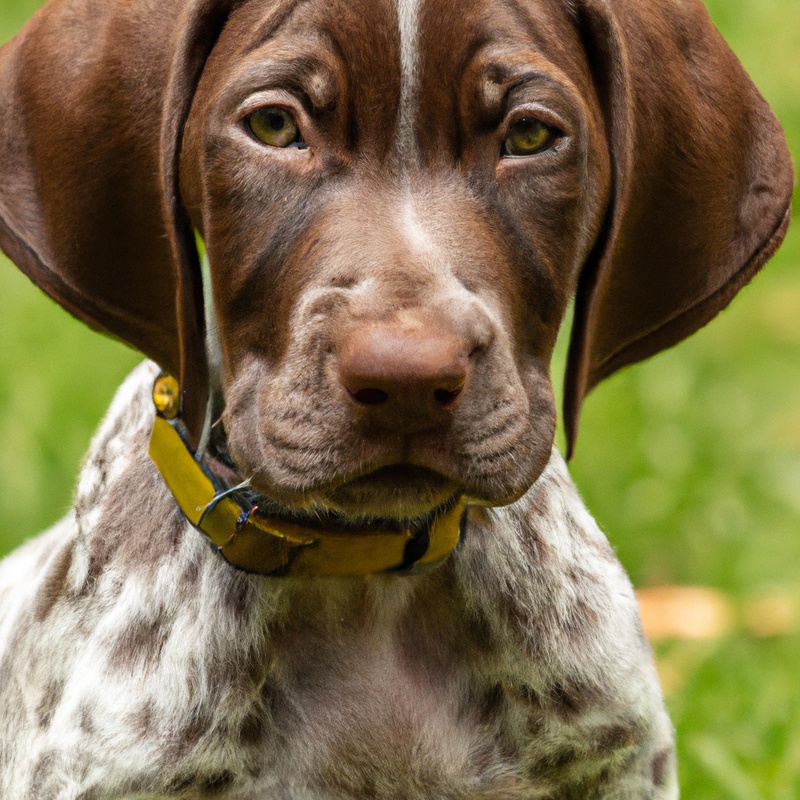
Tips for providing adequate exercise for your German Shorthaired Pointer
Daily exercise routine suggestions
Daily exercise is crucial for the physical and mental well-being of your German Shorthaired Pointer. Here are some suggestions for incorporating exercise into their daily routine:
- Walks: Take your German Shorthaired Pointer for regular walks, preferably for at least 30 minutes to an hour each day. This will not only provide physical exercise but also mental stimulation.
- Running or jogging: If you enjoy running or jogging, consider taking your dog along with you. German Shorthaired Pointers are energetic and enjoy high-intensity activities. Gradually increase the distance and speed to match their endurance.
- Play fetch: German Shorthaired Pointers love to chase and retrieve. Play a game of fetch in the backyard or at a nearby park. It’s a great way to tire them out and provide mental stimulation.
- Swimming: Many German Shorthaired Pointers are natural swimmers. If there’s a safe and suitable area, take them for a swim. Swimming is a low-impact exercise that helps strengthen their muscles.
- Interactive toys: Invest in interactive toys that require mental and physical engagement. Puzzle toys, treat-dispensing toys, and agility courses can keep your dog entertained and active.
Engaging mental stimulation activities
Engaging mental stimulation activities are essential for keeping your German Shorthaired Pointer happy and mentally sharp. Here are some ideas to provide them with the mental exercise they need:
- Puzzle toys: Invest in puzzle toys or treat dispensers that require your dog to use their problem-solving skills to access the treats. This engages their mind and keeps them entertained for longer periods.
- Hide and seek: Play a game of hide and seek with your dog. Hide treats or toys around the house or in the yard and encourage your dog to find them. This activity taps into their natural hunting instincts and provides mental stimulation.
- Training sessions: Obedience training and teaching new tricks not only strengthen the bond between you and your dog but also provide mental stimulation. Teach them commands or enroll in advanced training classes to challenge their intelligence.
- Scent games: German Shorthaired Pointers have an excellent sense of smell. Set up scent games by hiding treats or objects with familiar scents and let your dog use their nose to find them. This activity is mentally stimulating and taps into their natural abilities.
- Interactive toys: Interactive toys, such as treat-dispensing puzzles or interactive balls, keep your dog mentally engaged while providing physical exercise. These toys require problem-solving skills to access rewards, keeping them entertained and mentally stimulated.
Socialization and playdates with other dogs
Socialization and playdates with other dogs are essential for the overall well-being of your German Shorthaired Pointer. It’s a great way to provide mental stimulation and promote social skills in your furry friend.
By introducing your German Shorthaired Pointer to different dogs, they can learn appropriate behavior, develop social confidence, and improve their communication skills.
Playdates also allow them to expend their energy while having fun with their canine buddies. Remember to supervise the playdates, choose compatible doggie friends, and ensure that they are in a safe and controlled environment.
Regular socialization and playdates will go a long way in keeping your German Shorthaired Pointer happy, well-rounded, and mentally stimulated.
Enlisting the help of professional dog walkers or trainers
Enlisting the help of professional dog walkers or trainers can be a great solution if you are struggling to provide adequate exercise for your German Shorthaired Pointer. These professionals are experienced in handling energetic dogs and can ensure that your dog gets the physical activity they need.
A professional dog walker can take your German Shorthaired Pointer for long walks or engaging hikes, giving them the opportunity to burn off energy and explore their surroundings.
This can be particularly helpful if you have a busy schedule or are unable to give your dog the exercise they require. On the other hand, professional trainers can provide structured exercise and mental stimulation through obedience training, agility courses, or even scent work.
These activities not only tire out your dog physically, but also provide mental enrichment, which can prevent boredom and destructive behavior.
By enlisting the help of professional dog walkers or trainers, you can ensure that your German Shorthaired Pointer gets the exercise they need, keeping them happy, healthy, and fulfilled.
Additional ways to keep your German Shorthaired Pointer mentally stimulated
Puzzle toys and treat dispensers
Puzzle toys and treat dispensers can be excellent tools to keep your German Shorthaired Pointer mentally stimulated. They provide a fun and engaging challenge for your dog, keeping their mind active and preventing boredom.
With puzzle toys, your dog has to figure out how to access the treats hidden inside.
These toys usually have compartments, sliders, or puzzles that require your dog to use their problem-solving skills to retrieve the treats. It adds an element of excitement and keeps them entertained for longer periods.
Treat dispensers, on the other hand, are toys that release treats when your dog interacts with them.
This not only provides mental stimulation but also adds a physical aspect to their playtime. Your dog will have to work to get the treats out, keeping them engaged and active.
Both puzzle toys and treat dispensers are great options to provide your German Shorthaired Pointer with mental stimulation.
They can help prevent boredom and destructive behaviors by keeping your dog’s mind occupied and satisfied.
Interactive training sessions and obedience classes
Interactive training sessions and obedience classes can be immensely beneficial for your German Shorthaired Pointer when it comes to mental stimulation and overall behavior. By incorporating these sessions into your routine, you can provide your dog with the mental challenge they need to stay engaged and prevent boredom.
In interactive training sessions, you can engage your German Shorthaired Pointer in activities like puzzle toys, hide-and-seek games, or teaching them new tricks.
These sessions not only keep them physically active but also stimulate their minds, preventing them from getting bored. Obedience classes, on the other hand, provide structured training and socialization opportunities for your dog.
They learn important commands, such as sit, stay, and come, and how to behave around other dogs and people.
Regular obedience classes can help your German Shorthaired Pointer stay focused, obedient, and mentally stimulated. So, if you feel like your German Shorthaired Pointer is getting bored or needs more mental stimulation, consider incorporating interactive training sessions and obedience classes into their routine.
Your dog will thank you for the mental challenge and the opportunity to learn new things!
Nosework and scent games
Nosework and scent games are fantastic ways to keep your German Shorthaired Pointer mentally stimulated. These activities tap into their natural hunting instincts and provide them with an enjoyable challenge.
In nosework, you can teach your dog to use their excellent sense of smell to find hidden objects or treats.
Start by hiding a treat in an easy location and gradually increase the difficulty level. You can also try purchasing specific nosework kits or attending nosework classes with your pup.
Scent games involve introducing different scents for your dog to identify and follow.
You can use essential oils or specific scent detection kits designed for dogs. This activity not only engages their mind but also provides great physical exercise as they navigate their way to the source of the scent.
Teaching new tricks and commands
Teaching your German Shorthaired Pointer new tricks and commands is a fun and effective way to keep them mentally stimulated. Plus, it strengthens your bond with your furry friend! Start with basic commands like sit, stay, and come.
Use positive reinforcement techniques such as treats or praise to reward them for following your instructions.
Once they master these basics, you can move on to more advanced tricks like shake hands or roll over. Remember to be patient and consistent during the training process.
Keep training sessions short and frequent, as dogs have limited attention spans.
Practice in different environments to help your German Shorthaired Pointer generalize their learning. Don’t forget to make training sessions enjoyable by incorporating playtime and rewards.
This will make the learning experience more engaging for your pup.
With consistency and positive reinforcement, your German Shorthaired Pointer will be an expert at tricks and commands in no time!
Seeking professional advice for a bored German Shorthaired Pointer
Consulting a veterinarian for health concerns
If you have any concerns about your German Shorthaired Pointer’s health, it’s always best to consult a veterinarian. They are the experts when it comes to animal health and can provide guidance tailored to your specific situation.
Whether it’s a persistent cough, digestive issues, or any other symptoms, your vet can help assess the problem and provide appropriate treatment.
Working with a dog behaviorist for behavior modification
Working with a dog behaviorist can be a great way to address behavior issues in your German Shorthaired Pointer. A behaviorist is a professional who specializes in understanding and modifying dog behavior.
They can help you identify the root causes of your dog’s behavioral problems and create a tailored plan for behavior modification.
One of the main benefits of working with a behaviorist is their expertise in dog psychology. They understand the underlying motivations behind certain behaviors and can help you address them in a positive and effective manner.
They will work closely with you to develop a customized training plan that suits your dog’s specific needs.
During the behavior modification process, a behaviorist will use various techniques and strategies to modify your dog’s behavior. This can include positive reinforcement, desensitization, counterconditioning, and more.
They will also provide you with the necessary guidance and support to implement these techniques correctly.
Identifying and addressing any underlying issues
Identifying and addressing any underlying issues is crucial when it comes to tackling boredom in your German Shorthaired Pointer. First and foremost, observe your dog’s behavior closely.
Look for signs of restlessness, excessive chewing, or digging, which are common indications of boredom.
Additionally, monitor their energy levels and overall enthusiasm for activities. If you suspect boredom, consider providing mental stimulation through interactive toys, puzzles, or training sessions.
Increasing exercise routines or engaging in new activities like agility training can also help address any underlying issues.
Final Verdict
Understanding the signs of boredom in your German Shorthaired Pointer is crucial for their well-being and your sanity. Increased destructive behavior, excessive barking or howling, restlessness, lack of interest in toys, and seeking attention are all red flags that your furry friend needs more exercise.
Regular physical and mental stimulation through exercise not only prevents boredom, but also promotes their overall mental and physical health.
By implementing a consistent exercise routine, engaging in mental stimulation activities, and seeking professional advice when needed, you can ensure that your German Shorthaired Pointer lives a happy and fulfilled life. Trust in the information presented here, and take action to provide your furry companion with the exercise they truly need.

